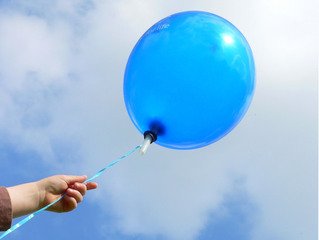Plastic Pollution Doesn’t Fly With Us: Banning Intentional Balloon Releases
April 9, 2019
Balloons are usually thought of as a fun and festive part of a celebration. But these seemingly harmless floating objects are a growing threat to our environment. Balloons are consistently found during beach and park cleanups, based on nationwide data collected by the Ocean Conservancy. Even more concerning is that a balloon’s final resting place is often somewhere in our waterways.
To an unsuspecting bird or fish, a balloon can appear to be a jellyfish or algae, making it difficult for them to distinguish food from trash. In fact, according to the United Nations, at least 267 species of seabirds, turtles, seals, sea lions, whales, and fish suffer from entanglement or ingestion due to plastic debris.
Consider using bubbles instead of releasing balloons.
We enjoy balloons for a matter of minutes but their impact on the environment lasts for years, which is why NY/NJ Baykeeper supports statewide legislation that will ban the intentional release of balloons. Several New Jersey municipalities have already banned the intentional release of balloons including Margate, Longport, Ventnor, Longport, Brigantine, Atlantic City, Long Beach Township, North Wildwood, Somers Point, Upper Township, Cape May City, Somers Point, Sea Isle City, and Bradley Beach. The US Fish and Wildlife Service has also publicly urged residents to avoid releasing balloons. Please call your NY or NJ Senate and Assembly members to support legislation that would ban the intentional release of balloons to prevent plastic pollution and protect wildlife that depend on clean water and habitat.
